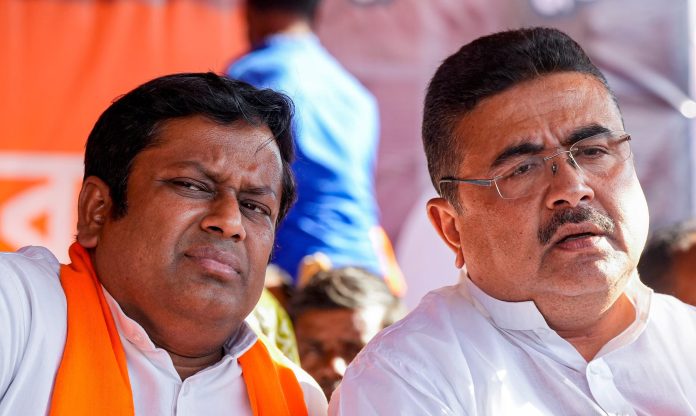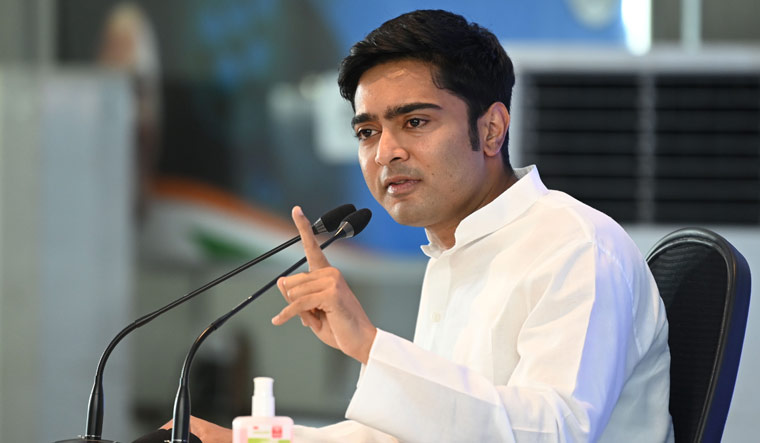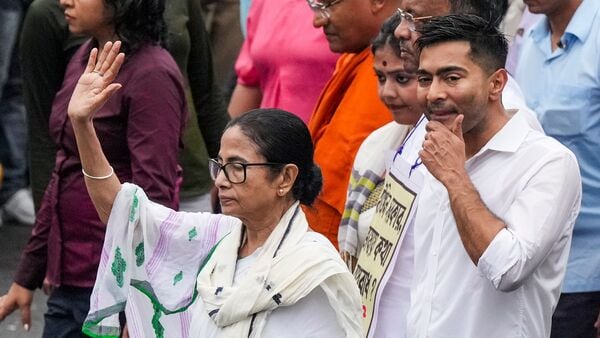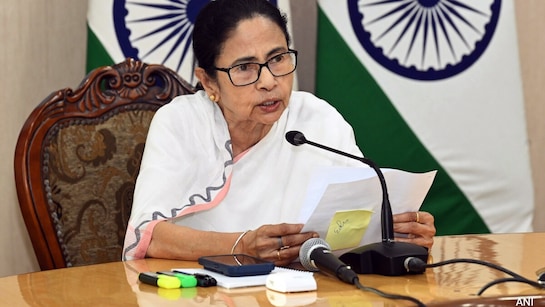Baby Chakraborty | KalimNews | June 19, 2025 | Kolkata : The political battleground in West Bengal is once again abuzz as preparations quietly begin for the 2026 Assembly elections. In what many are calling Bengal’s ‘political World Cup’, the Bharatiya Janata Party (BJP) has begun laying strategic groundwork to consolidate its position as the principal opposition and mount a formidable challenge to the ruling Trinamool Congress (TMC), led by Chief Minister Mamata Banerjee.
While the BJP is yet to officially declare its chief ministerial candidate, the name of Suvendu Adhikari has emerged prominently in the internal discourse. Though West Bengal BJP president and newly appointed Union minister Sukanta Majumdar is also considered a contender, it is Adhikari who appears to be leading the race. A senior BJP leader has reportedly said, “There is no alternative to Suvendu Adhikari,” indicating a strong leaning within the party’s central leadership toward projecting him as the face of the party in the upcoming elections.
Adhikari’s political journey is as striking as it is strategic. Once a key figure within the Trinamool Congress, he switched allegiance to the BJP ahead of the 2021 Assembly elections. His biggest political coup came when he defeated Mamata Banerjee herself in the high-stakes Nandigram constituency by a margin of 1,956 votes. This victory not only cemented his position within the BJP but also led to his appointment as the Leader of the Opposition in the state assembly.
Over the past four years, Adhikari has consistently positioned himself as a vocal critic of the TMC government. From raising concerns about corruption and administrative irregularities to highlighting law-and-order issues, he has spearheaded several campaigns against the state administration. His political experience within the TMC, coupled with his combative stance, has made him a strong contender in the eyes of many within the BJP.
However, the state BJP unit is not without internal friction. A notable power struggle is underway between Suvendu Adhikari and Sukanta Majumdar. This rivalry came to the fore during Union Home Minister Amit Shah’s visit to West Bengal on May 31 and June 1. While Adhikari’s camp saw Shah’s public praise—stating that “whenever Adhikari stands up, Didi feels scared”—as a major endorsement, Majumdar’s supporters highlighted that he was the only leader to accompany Shah on the flight to Kolkata, interpreting it as a sign of deeper proximity to the central leadership.
The jostling for influence has created a visible rift within the state BJP. Despite the high-profile visit by Shah and the announcement of new organisational initiatives such as Tiranga Yatras and the promotion of Operation Sindoor, the party continues to suffer from a lack of unity and leadership clarity. The state unit has been headless for over a year since Majumdar’s elevation to the Union Cabinet after winning the Balurghat seat in the 2024 Lok Sabha elections. No successor has been named, leaving the party directionless at a critical juncture.
Compounding these issues is the BJP’s waning electoral performance in the state. After securing 18 Lok Sabha seats in 2019, the party managed to win only 12 in 2024. The tally of 77 assembly seats in 2021 has since fallen to under 70, and the party has failed to win any by-elections since. Key grassroots structures like booth committees remain incomplete, a factor widely seen as contributing to the BJP’s poll setbacks.
Despite the internal discord, the central leadership appears determined to rally the state unit. While intra-party rivalries have taken centre stage for now, the party’s broader objective remains unambiguous: to present a united and strong opposition to Mamata Banerjee in 2026. With Suvendu Adhikari increasingly emerging as the central figure in the party’s plans, the coming months will be crucial in determining whether the BJP can overcome its internal challenges and mount a serious electoral offensive in West Bengal.









